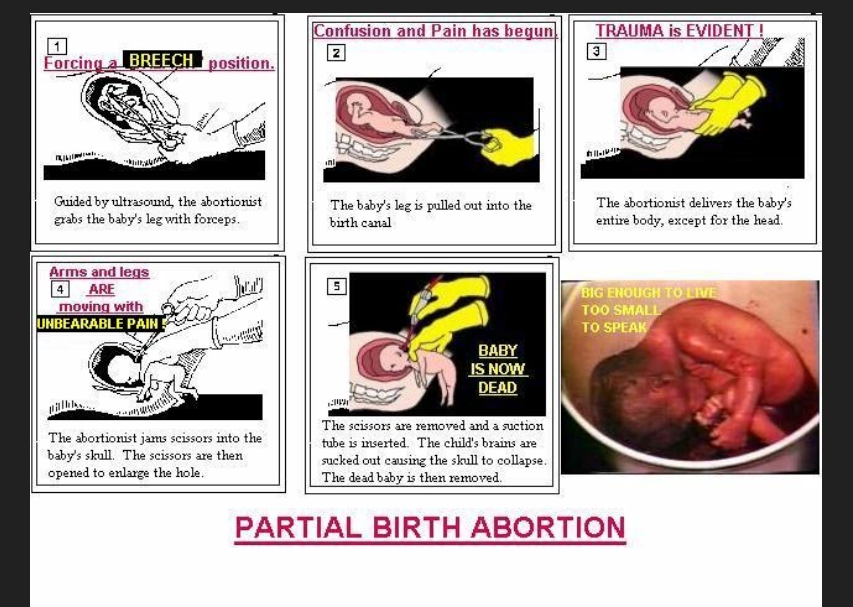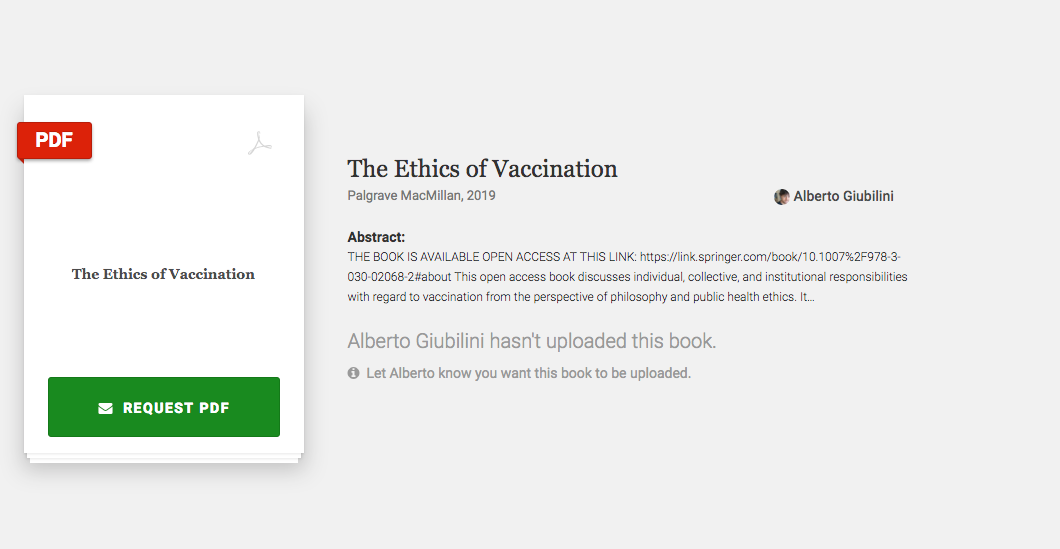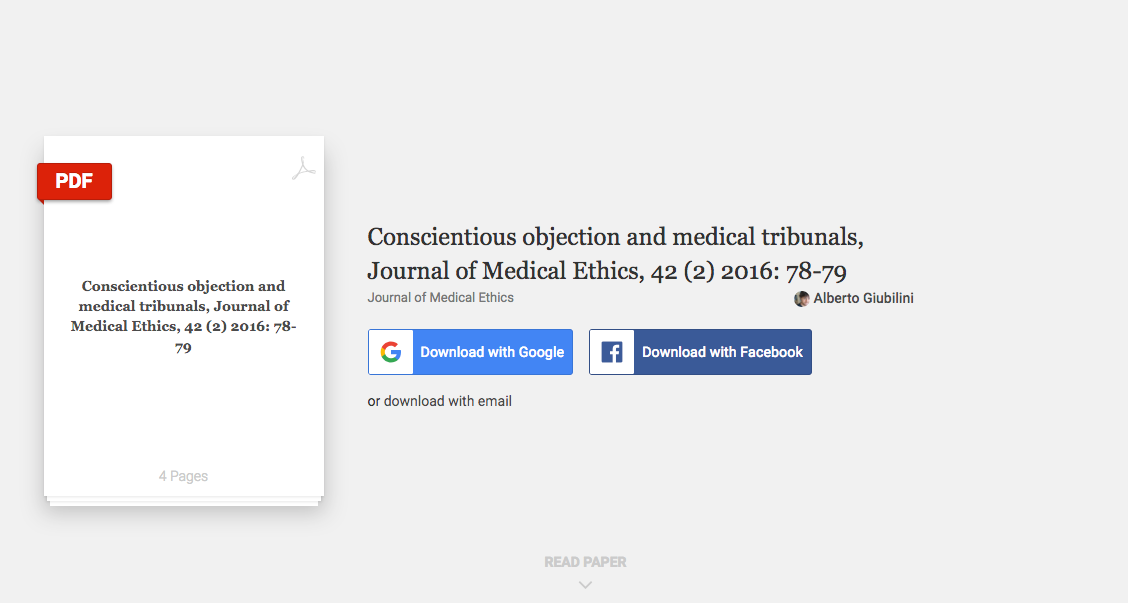
Taken from the Journal of Medical Ethics Volume 39, issue 5 written in 2013
Authors,
Alberto Giubilini, Francesca Minerva
Centre for Applied Philosophy and Public Ethics, Charles Sturt University, Canberra, Australian Capital Territory, Australia
Centre for Applied Philosophy and Public Ethics, University of Melbourne, Melbourne, Victoria, Australia
A serious philosophical problem arises when the same conditions that would have justified abortion become known after birth. In such cases, we need to assess facts in order to decide whether the same arguments that apply to killing a human fetus can also be consistently applied to killing a newborn human.
Such an issue arises, for example, when an abnormality has not been detected during pregnancy or occurs during delivery. Perinatal asphyxia, for instance, may cause severe brain damage and result in severe mental and/or physical impairments comparable with those for which a woman could request an abortion. Moreover, abnormalities are not always, or cannot always be, diagnosed through prenatal screening even if they have a genetic origin. This is more likely to happen when the disease is not hereditary but is the result of genetic mutations occurring in the gametes of a healthy parent. One example is the case of Treacher-Collins syndrome (TCS), a condition that affects 1 in every 10 000 births causing facial deformity and related physiological failures, in particular potentially life-threatening respiratory problems. Usually those affected by TCS are not mentally impaired and they are therefore fully aware of their condition, of being different from other people and of all the problems their pathology entails. Many parents would choose to have an abortion if they find out, through genetic prenatal testing, that their fetus is affected by TCS. However, genetic prenatal tests for TCS are usually taken only if there is a family history of the disease. Sometimes, though, the disease is caused by a gene mutation that intervenes in the gametes of a healthy member of the couple. Moreover, tests for TCS are quite expensive and it takes several weeks to get the result. Considering that it is a very rare pathology, we can understand why women are not usually tested for this disorder.
However, such rare and severe pathologies are not the only ones that are likely to remain undetected until delivery; even more common congenital diseases that women are usually tested for could fail to be detected.
An examination of 18 European registries reveals that between 2005 and 2009 only the 64% of Down's syndrome cases were diagnosed through prenatal testing. This percentage indicates that, considering only the European areas under examination, about 1700 infants were born with Down's syndrome without parents being aware of it before birth. Once these children are born, there is no choice for the parents but to keep the child, which sometimes is exactly what they would not have done if the disease had been diagnosed before birth.
This is preposterous to me! Why would you determine a child born with a challenge Doesn't deserve life? What if these people already living had been born with a challenge?
This is why people like Connor O'Dowd and Frank Stephens give speeches talking about how much they enjoy life and the rights of these special individuals!
Hear them speak and Patricia Keaton's comment from CBS claiming Iceland had eradicated Down Syndrome.
Also medical professionals have recognized the need for guidelines about cases in which death seems to be in the best interest of the child. In The Netherlands, for instance, the Groningen Protocol (2002) allows to actively terminate the life of ‘infants with a hopeless prognosis who experience what parents and medical experts deem to be unbearable suffering’.
Although it is reasonable to predict that living with a very severe condition is against the best interest of the newborn, it is hard to find definitive arguments to the effect that life with certain pathologies is not worth living, even when those pathologies would constitute acceptable reasons for abortion.
Right there admitting they have No way to Determine and it is Not their decision whether there is value in a Life or not!
So Here they want to play God, but have to admit. ..
It might be maintained that ‘even allowing for the more optimistic assessments of the potential of Down's syndrome children, this potential cannot be said to be equal to that of a normal child’. But, in fact, people with Down's syndrome, as well as people affected by many other severe disabilities, are often reported to be happy.
Who are they to Play God?
Nonetheless, to bring up such children might be an unbearable burden on the family and on society as a whole, when the state economically provides for their care.
What kind of evil, distorted reasoning is this? Isn't that what satan Always does. Distorts and turns upside down, attempting to harm good?
On these grounds, the fact that a fetus has the potential to become a person who will have an (at least) acceptable life is no reason for prohibiting abortion.
How Unbelievable is This?
Therefore, we argue that, when circumstances occur after birth such that they would have justified abortion, what we call after-birth abortion should be permissible.
They can CALL it this as if they are judge and jury over others' lives, but we call it what our Creator calls it. . . MURDER! Plain and simple!
They try to repackage it and Justify with various terms, but it all boils down to one thing. . .Selfishness!
Valuing their Own life above someone else's! How dare they! There Will be a Reckoning!
Yes, we all know about their terms, their names to make their wickedness more palatable, more acceptable to themselves and others. Disgusting is what it is!
In spite of the oxymoron in the expression, we propose to call this practice ‘after-birth abortion’, rather than ‘infanticide’, to emphasize that the moral status of the individual killed is comparable with that of a fetus (on which ‘abortions’ in the traditional sense are performed) rather than to that of a child.
They Actually State this!
Therefore, we claim that killing a newborn could be ethically permissible in all the circumstances where abortion would be. Such circumstances include cases where the newborn has the potential to have an (at least) acceptable life, but the well-being of the family is at risk.
This article goes on to state,
Accordingly, a second terminological specification is that we call such a practice ‘after-birth abortion’ rather than ‘euthanasia’ because the best interest of the one who dies is not necessarily the primary criterion for the choice, contrary to what happens in the case of euthanasia.
What kind of self-serving luciferian talk is this?
Failing to bring a new person into existence cannot be compared with the wrong caused by procuring the death of an existing person.
Yes. ..right here, definitely Self-serving and focus on "women's rights!" A social engineering tactic that has not Only proven effective by them, but has become Quite the money maker!
The reason is that, unlike the case of death of an existing person, failing to bring a new person into existence does not prevent anyone from accomplishing any of her future aims.
However, this consideration entails a much stronger idea than the one according to which severely handicapped children should be euthanized. If the death of a newborn is not wrongful to her on the grounds that she cannot have formed any aim that she is prevented from accomplishing, then it should also be permissible to practice an after-birth abortion on a healthy newborn too, given that she has not formed any aim yet.
Unbelievable. . .yet, here we are with New York putting it into law!
As you Know, it is Always about justifying their actions and "pretending a Life," a God created being is something Other than what it is!
There are two reasons which, taken together, justify this claim:
The moral status of an infant is equivalent to that of a fetus, that is, neither can be considered a ‘person’ in a morally relevant sense.
It is not possible to damage a newborn by preventing her from developing the potentiality to become a person in the morally relevant sense.
Then they attempt to work through it like a proof in two sections titled,
The newborn and the fetus are morally equivalent
The fetus and the newborn are potential persons
The people writing this "abstract" were apparently also Potential Persons!
Might ask, where the cut off is of when one is No Longer just Potential, but actually considered Alive?
So Right here they state both a fetus and newborn Are human beings!
Both a fetus and a newborn certainly are human beings and potential persons, but neither is a ‘person’ in the sense of ‘subject of a moral right to life’.
Who decides who gets to have a moral. ..which actually sound amoral right to life?
See more in the source below. Sounds like a great deal of double talk to me.
Now let's take a closer look at these authors. A quick search will lead you to this. . .
http://oxford.academia.edu/AlbertoGiubilini
Where you will find abstract from Giubilini like this

Which you can download at this link
http://www.academia.edu/38147727/The_Ethics_of_Vaccination

You can go here and don't have to download this paper, if you scroll down you can just read a part of it,
Even the Washington Post wrote an article on these two,

I don't subscribe, but perhaps some of you do.
You can see some of Minerva's research here,
https://www.researchgate.net/profile/Francesca_Minerva
Like this one she also wrote with Gibiubilini,
From assistive to enhancing technology: Should the treatment-enhancement distinction apply to future assistive and augmenting technologies?
Found here,
What are your thoughts on this? Are you as disgusted as I am that a group who named themselves our entitled, elitist overlords are making decisions as to whether a human being is a Person or not? Let me know in the comments below. Godspeed!
Source,
https://jme.bmj.com/content/39/5/261.full

